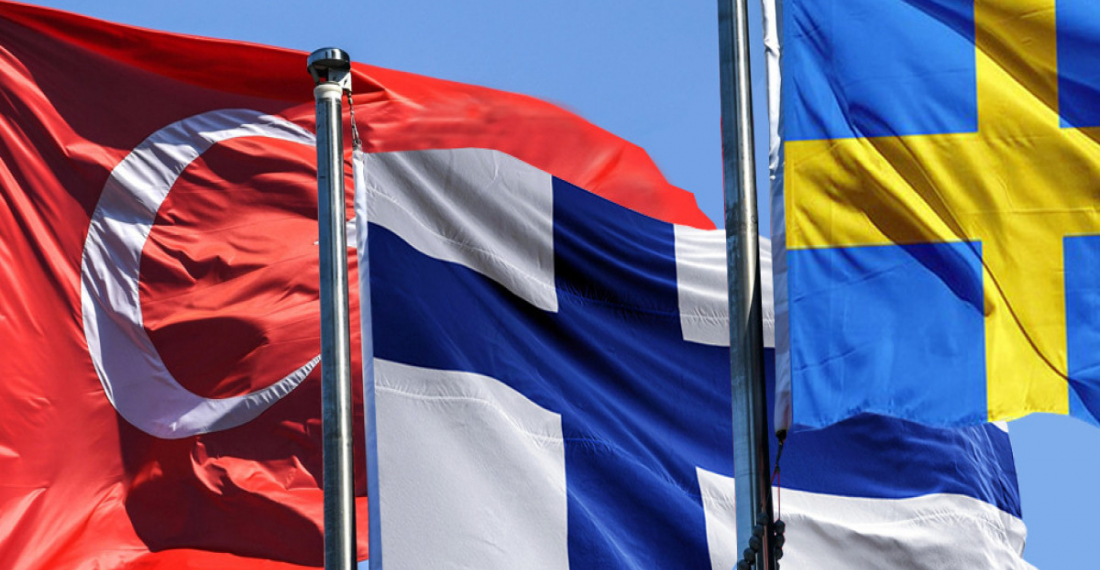Finland and Sweden reiterated on Friday that they will cooperate with Turkey in the fight against terrorism during their first trilateral meeting since the NATO Madrid summit when the mechanism for consultation was created as part of the process leading to membership in NATO for the two previously neutral Scandinavian countries. The meeting was held in Helsinki.
According to a statement from the office of Turkey's Presidential Spokesperson, Ibrahim Kalin, Finland and Sweden reiterated their commitment to show full solidarity and cooperation with Turkey in the fight against all forms and manifestations of terrorism, pledging to fully support Turkey against all threats to its national security, especially from the PKK terrorist organisation, its Syrian PYD/YPG offshoots and FETO, an organisation that Turkey holds responsible for the failed military coup in 2016.
“It was agreed to intensify cooperation at the technical level among the relevant institutions in order to achieve concrete progress on the issues addressed within the scope of the mechanism,” the statement added.
During the meeting, the fundamentals of the permanent joint mechanism were determined while developments on the realisation of the commitments in the trilateral deal were reviewed as well as concrete steps to be taken in the future.
In the aftermath of the Russian invasion of Ukraine, Sweden and Finland decided to abandon their long-held neutral status and apply to join NATO as protection against an increasingly aggressive and unpredictable Russia – which shares a long border with Finland. Under NATO treaties, an attack on any member would be considered an attack against all and trigger a military response by the entire alliance.
Turkey, a long time NATO country, agreed in June to lift its opposition to Sweden and Finland joining NATO, ending an impasse that had clouded a leaders’ summit in Madrid amid Europe’s worst security crisis in decades, triggered by the war in Ukraine.
Turkey is asking that the two countries extradite wanted individuals and lift arms restrictions imposed after Ankara’s 2019 military operation into northeast Syria.
Turkey is one of seven out of 30 NATO member states that have yet to ratify the decision to admit Sweden and Finland to NATO. The process has to go through the Turkish parliament, which is currently on its summer break and will re-convene on 1 October.






